Recognition of academic and experiential competencies in adult education
In adult education, each case is unique and must be evaluated individually. To know what applies in a particular situation students must refer to their local SARCA.
Passing the GDT qualifies adults 18 years and older for certain vocational training programs in high school as well as certain construction trades (CCQ). The GDT may have to be accompanied by prerequisites in French or mathematics according to each trade.
Who can take the GDT?
- The test can normally be taken at the age of 18 (as of June 30) to enter vocational training.
The passing of the Secondary School Equivalence Test is recognized by an Attestation of Equivalence of Secondary 5 Studies (AESS-AENS).
The SSET-TENS permits adults who have not finished their secondary studies, but who nevertheless have acquired equivalent competencies:
- To obtain official recognition by the Ministry to integrate into the labor market.
- To obtain a promotion in their workplace.
- To register for vocational training in high school.
The attestation is delivered to the adult who has completed two obligatory French tests (grammar and reading comprehension) and three other tests among five that are offered (mathematics, English as a second language, social science, economic sciences, natural sciences).
This attestation gives access to several vocational study programs and jobs that require Secondary 5 or equivalent. It should be noted that the attestation does not qualify them for entry to a college education.
Who can take the SSET-TENS?
- One must be 16 years old on June 30 of the current year to register for the SSET.
These tests are destined for students 16 or over before July 1 in the current year and have not finished their high school studies. It calls upon general skills and knowledge, and abilities to analyze and synthesize information.
The completion of GED tests allows acquisition of a Certificate of Equivalence of Secondary Studies (CEES) that is recognized by most employers in North America.
The GED permits students
- To obtain the high school equivalency certificate (CEES).
- To acquire optional course (up to 36 credits) towards a high school diploma.
- To respond to certain requirements to apply for a job.
- To be admitted into vocational training programs (DEP).
- To be admitted to college education programs (DEC).
- To be admitted to continuing college education programs (AEC).
There are five GED tests offered in French and English. The credits for the Secondary 5 core subjects are attached to each completed test. Passing the five tests is required to obtain the high school equivalency certificate (CEES).
The Prior Learning Examination (PLE English second language) and the French Uniform Examination (français langue seconde)
These tests permit anyone 16 years or older to have formal recognition of their English second-language skills for the PLE and French second-language for the uniform exam regardless of location, time or modalities of their learning. They bring together questions related to the Secondary 3, 4 and 5 courses, including, for the PLE, enriched English in Secondary 5.
Exams only
Article 28 of the Basic adult general education regulation allows an adult to register for tests that are mandatory to obtain credits without having taken the corresponding course, regardless of where, when and how they acquired their skills.
All Quebec citizens 16 years and older are entitled to this service. An adult may have learned on his own, in his mother tongue or a second language, as well as in mathematics or in the field of personal and social development. He must demonstrate his ability to pass a course exam even if he has not registered for an educational program.
Source: Administrative Guide for the Certification of Studies and Management of Ministerial Examinations, MEES
Source : Guide de gestion de la sanction des études et des épreuves ministérielles, MEES
